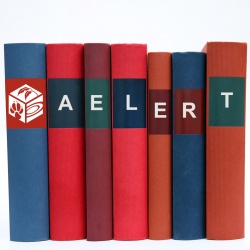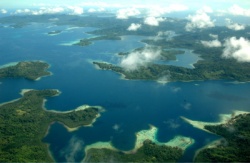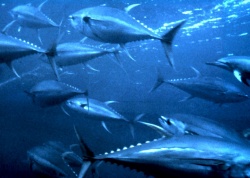
Search archive
Level 1 interview training
23/03/2016

Following the success of the recent webinar "Inside the Mind: Psychology of an Interview", presented by Dr Karl Roberts, AELERT members expressed a strong interest in further interviewing training. Limited places remain to attend a Level 1 interview training course in Adelaide, on 20 June 2016.
LEVEL 1 INTERVIEW TRAINING COURSE
Date: Monday 20 - Thursday 23 June 2016
Location: EPA SA, 250 Victoria Square, Adelaide SA
This course will run over 4 days, and will be delivered by 2 professional trainers. The course accommodates a maximum of 16 people.
Register by contacting Kevin Rowley: Kevin.Rowley@sa.gov.au.
Who should attend?
- Newly appointed enforcement officers.
- Existing officers having received little or no training previously.
- Existing officers trained historically in need of refresher training.
What will you learn?
The training will be delivered in a blend of PowerPoint presentations, case study group/individual work and mock interview practice. The trainers will refer to real life case studies and learnings from mistakes made by other enforcement agencies. You will walk away being able to:
- Identify and utilise correct questioning techniques.
- Recognise different categories of witnesses.
- Apply the cognitive interview model of interviewing.
- Understand the legal requirements of interviews with suspects.
- Apply the conversation management approach to suspect interviews.
Cost
$1620 per student, which includes an official Statement of Attainment.
Who is running the course?
This course is being coordinated by EPA SA, in collaboration with Intersol Global. Intersol Global are part of the International Investigative Interviewing Group and have been awarded Practitioners of the Year by iIIRG.
NSW EPA is also supporting this course through their Professional Training and Development Program. Through their involvement, students can apply for "Statement of Attainment" for two units of competency:
- PSPREG411A Gather information through interviews
- PEPREG407B Produce formal record of interview
The process of applying for a Statement of Attainment occurs upon course completion.
Four companies charged over Hazelwood mine fire
17/03/2016

The Environment Protection Authority Victoria (EPA) has laid charges against four companies for air pollution offences during the infamous 2014 Hazelwood coal mine fire.
The charges allege that the mine owners, as a result of the fire, caused air pollution that was noxious and harmful to the health and safety of human beings. Each company is being charged with three offences (a total of 12 charges) pursuant to section 41 of the Environment Protection Act 1970.
The mine owners are already facing 10 workplace safety charges from WorkSafe Victoria in relation to the fire, and the Country Fire Authority is seeking $18 million in costs.
The four companies being charged are:
- National Power Australia Investments Limited
- Hazelwood Pacific Pty Ltd
- Australian Power Partners B.V.
- Hazelwood Churchill Pty Ltd.
Image credit: Keith Pakenham, CFA photographer
Background
On 9 February 2014, embers from a nearby bushfire set alight brown coal within the Hazelwood mine. The blaze lasted for 45 days, covering nearby towns in smoke and requiring over 7000 fire fighters to extinguish.
This unprecedented event attracted significant ongoing media attention and caused serious concern amongst the local community. The mine site, which supplies approximately 20% of Victoria's power, was officially declared safe on 2 March 2014.
During the fire
Throughout the fire the EPA monitored and analysed air, soil and water quality, liaising closely with the Department of Health and Human Services. The ash and smoke was, in some areas, so severe that residents were advised to evacuate by health authorities.
After the fire
For 14 months following the fire, the EPA continued to monitor and report on air, soil and water quality. The results of this monitoring showed that there were no ongoing changes in the Latrobe Valley due to the fire.
In response to community concern, the EPA committed to an additional 12 months of monitoring and established a citizen science program for water sampling.
Independent Inquiry
In March 2014, the Victorian Government announced an independent inquiry into the fire.
The initial inquiry resulted in 18 recommendations, including the introduction of new conditions on coal mining licences. This recommendation was enacted, aiming to reduce the risk of further major mine fires. Mine operators are now required to assess the impact and likelihood of fires, and identify methods to prevent fires from being sparked.
The inquiry was reopened in May 2015, with a goal to examine whether an increase in death rates within the Latrobe Valley could be attributed to the fire, and to assess rehabilitation options for the site.
The inquiry found that the fire could have contributed to higher than normal death rates in the Latrobe Valley.
Read more
- Hazelwood Mine Fire Inquiry
- EPA media release: Charges laid following EPA investigation into Hazelwood mine fire.
- ABC News Article: Hazelwood fire EPA charges four companies over 2014 coal mine blaze
- The Age: Hammer comes down on Hazelwood: environmental charges to be laid.
- The Conversation: The two-year wait for Hazelwood mine fire charges shows the system needs to change.
- Images of the fire, taken by CFA photographer Keith Pakenham
Welcome Solomon Islands!
11/03/2016

We are very pleased to welcome the Solomon Islands’ Ministry of Environment, Climate Change, Disaster Management and Meteorology to AELERT.
The Ministry is the first Australasian agency outside of New Zealand and Australia to join AELERT, strengthening the network’s connectivity within the region.
The AELERT Steering Committee expressed their pleasure that the network’s reputation is attracting broader Australasian involvement, and their desire to collaborate further on cross-jurisdictional matters.
“The environment that we regulate doesn’t conform neatly to geographic boundaries, making it critical that we connect and collaborate with our colleagues in neighbouring countries,” said Tony Circelli, AELERT Chair.
“Therefore it’s a wonderful and promising occasion to welcome the Solomon Islands to the AELERT family and, speaking for the entire network, I look forward to hearing about the Ministry’s regulatory processes, goals and challenges.
Jointly Sisiolo, Principal Conservation Officer at the Ministry, says that AELERT’s mission to facilitate the effective enforcement of environmental legislation is vital to the Solomon Islands’ economy, biodiversity and people.
“80-90% of Solomon Islanders live in a rural village setting, and directly depend on environmental resources for their survival and financial livelihood, such as fish stocks and forest resources,” Jointly said.
“So it’s really important to enforce our environmental legislation and policy, which allows us to responsibly balance economic requirements with environmental protection, resource conservation and social benefits.”
Jointly also hopes that the Ministry’s involvement with AELERT will facilitate collaboration on transboundary regulatory matters.
“Solomon Islands shares responsibility with Australia and New Zealand for several transboundary species, including whales, dolphins and fish stocks, in addition to pollutants and invasive species,” he said.
“Collaborating through AELERT will further the enforcement of our domestic and international laws that protect and regulate these species.”
Tackling patterns of non-compliance
07/03/2016

NSW Environment Protection Authority (EPA) has instructed Truegain waste oil refineries to conduct a Mandatory Environmental Audit, following an extended period of poor regulatory performance.
The company has received 18 penalty notices since 2000 and has been prosecuted twice; once for water pollution in 2003, and once for failing to undertake its activities in a competent manner in 2014.
"Truegain has repeatedly failed to comply with a range of conditions under its Environment Protection Licence,” said EPA Director Gary Davy.
Truegain, based in Rutherford NSW, also recently reported levels of air contaminants that exceed their allowance, including carbon monoxide, nitrogen oxides and hydrogen chloride.
The company was recently physically disconnected from Hunter Water Corporation's sewer system, after contaminants were found in in the refinery's waste water. This detection, however, is not related to the audit order and is currently being investigated by the EPA.
What is a Mandatory Environmental Audit?
NSW EPA uses Mandatory Environmental Audits as a regulatory tool in instances where there has been a pattern of non-compliance, or where there has been a serious environmental breach of a company's licence conditions.
This regulatory tool requires companies to audit their practices and procedures, and report back to the EPA. The auditor must be engaged by the licensee, with EPA approval, and all audit costs must be met by the company.
In this case, once an auditor has been engaged, Truegain will have six months to determine:
- The adequacy of controls and procedures to test waste products prior to processing and to identify contaminant concentration levels that could lead to pollution
- The operation and maintenance of pollution control equipment
- The adequacy of bundling and spill management for the storage of waste chemicals and materials
- The potential for offsite impacts on groundwater from historical storage and spillages at the premises.
Find out more about NSW EPA's regulatory tools in their Compliance Policy.
A tuna-around for Commonwealth fish stocks
07/03/2016

Good news for the fishing industry, regulators and seafood lovers in general!
Yellowfin tuna from the Commonwealth managed Eastern Tuna and Billfish Fishery is now a sustainable fish stock, with 20% higher catches compared to last year.
Dr James Findlay, CEO of the Australian Fisheries Management Authority (AFMA), says that they are working with industry and scientists to secure a healthy supply of Australian seafood for years to come.
“Importantly, while catches are up, they are sustainable, with strict quota limits set by AFMA that are based on the best available science," Dr Findlay said.
"Yellowfin tuna is just one of several Commonwealth commercial species that have had a bumper season which is great news for all Australians and seafood consumers".
 The area, which runs down the east coast of Australia from Cape York to the SA/VIC border, has also seen a better season for broadbill swordfish.
The area, which runs down the east coast of Australia from Cape York to the SA/VIC border, has also seen a better season for broadbill swordfish.
Want to know more?
Read about the Eastern Tuna and Billfish fishery on AFMA's website.

